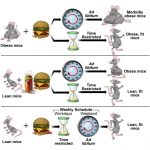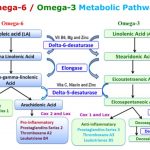Enzyme Therapy and Cancer:
Enzymes are extremely vital to human well-being. They play a critical role in digestion and nutrient assimilation, in immune response, cognitive acceleration, and cellular detoxification among other things. Enzyme therapy has shown incredible promise in natural protocols for cancer since the early 1900s (1).
Enzymes are some of the most important structures in the body. They are long-chain proteins that take on specific shapes and act like a key to unique locks throughout the body. Their job is to carry out very specific functions throughout the body. They assist the body in healing and regenerative functions as well as immune system modulation that plays a very important role in disease development.
Enzymes are biocatalysts that are used to carry out and speed up the process of chemical reactions in the body. We have roughly 3000 unique enzymes in our bodies that are involved in over 7000 reactions.
We also consume enzymes when we eat raw, sprouted and fermented fruits and vegetables. Supplementing with an array of plant and mammalian enzymes has been shown to have powerful health benefits in a number of different health conditions including cancer (2,3).
Contents
Cancer Cells and Enzymes
Cancer cells are covered in fibrin which is a thick outer coating designed to prevent the bodies immune system from identifying and destroying the cancer cell. This fibrin defense keeps chemotherapy out of the cells unless industrial strength doses are used. This high dose chemotherapy is also extremely toxic to the body.
Systemic enzymes have been shown to break down the outer fibrin wall of the cancer cell making it easier for chemotherapy to penetrate and destroy the cancer cells (4). This allows lower dosages of chemotherapy to be used. Enzyme therapy has also shown to reduce the side effects of chemotherapy and reducing the debilitating muscle wasting that chemo therapy produces (5).
Patients undergoing chemotherapy often have many side effects such as nausea, vomiting, diarrhea, pain and fatigue. Research has shown that enzyme therapy reduces these symptoms by reducing the cytotoxic effects of chemotherapy to the rest of the body (5).
Radiation, Surgery and Enzymes:
Radiation treatment damages the organs it is affecting and creates rigid scar tissue build-up throughout the organ. This restricts the organs ability to function. Systemic enzyme therapy prevents this scarring and breaks down existing fibrosis to enhance the organs function.
They also improve outcomes associated with surgical procedures (6). Patients report faster recovery when using systemic enzymes before and after the surgical procedure.
Enzymes and Immune System:
Enzymes have also shown to decrease inflammation and boost specific cytokines and improve the potency of macrophages and killer cells (7). The macrophages and natural killer cells are specific immunological cells that go through the body and hunt for abnormal cancerous cells and cancer initiating viruses. The more effective this part of the immune system is the less chance of cancer development, growth and metastasis.
Systemic enzymes work to modulate or coordinate the activity of various immune complexes and have no major adverse reactions (8). They work as a lock and key mechanism and have an affinity for proinflammatory cytokines such as Tumor Necrosis Factor (TNF) and C Reactive Protein (CRP). They also downregulate the overactivity of Tumor Growth Factor-Beta at the RNA and protein synthesis level.
Enzymes and Anti-Proteinase Activity:
Systemic enzymes are also known to bind irreversibly to antiproteinases such as α-2-macroglobulin and α-1-antitrypsin (9). This leads to the synthesis of antiproteinases which inactivate other proteinases such as cathepsins which are thought to play a role in tumor development and metastasis.
The ratio of proteinases to antiproteinases is increasingly being used as a prognostic marker in oncology (9). The cysteine group of proteinases such as papain and bromelain are known to influence the balance between proteinases and antiproteinases and influence tumor metastasis through this.
Enzymes interact with adhesion factors such as CD-44, CD-49, CD-54 and CD-58 which play a role in tumor growth and metastasis (10). Enzymes also enhance anti-oxidant enzymes and reduce the amount of reactive oxygen species and free radical damage that initiates oncogene expression and development (11).
Usage of Systemic Enzymes:
Systemic enzyme preparations are carefully formulated so they do not dissolve in the stomach acid and are able to get into the bloodstream fully intact. The best systemic enzyme supplements use a variety of plant and animal enzymes. Three powerful plant based enzymes include papain, rutin and bromelain while mammalian enzymes include trypsin, chymotrypsin and pancreatin.
Systemic enzymes are consumed on an empty stomach, enabling them to be absorbed into the blood stream to travel “systemically”, working throughout the body. Systemic enzymes are protease enzymes that break down protein, and certain proteases have been shown to exhibit profound fibrinolytic and anti-inflammatory activity.
My favorite systemic enzyme supplement is Wobenzyme that you can find here
Enzymes and Intermittent Fasting:
Intermittent fasting used with systemic enzymes maximizes the benefit of both. Intermittent fasting for periods of 16 -18 hours without any metabolically dynamic foods or drinks has been shown to improve the immune system and boost human growth hormone. It also improves hormonal signaling in the body and stabilizes blood sugar and enhances fatty acid metabolism.
Systemic enzyme therapy must be done during periods outside of the digestive window. An individual who is eating throughout the day will not have a long enough fasting window to effectively incorporate high dose enzyme therapy.
Most people do best when they use the morning hours to fast on water and cleansing beverages such as green drinks, herbal teas and lemon water. This is the ideal time to use high dose systemic enzymes. Additionally, it is always advisable to finish eating several hours before going to sleep for optimal digestion and immunity. So using high dose enzyme therapy right before bed is another ideal window of delivery.
Enzyme Therapy Dosages:
Cancer Prevention & Powerful Anti-Inflammatory Benefits:
5 grams daily – 20 caps daily
10 caps in morning on arising
10 caps before bed
Cancer Patients: Active Cancer in the Body:
20-25 grams of systemic enzymes per day – 80 caps daily
30 caps first thing in morning on empty stomach
20 caps 3 hours later (at least 2 hrs before/after food)
30 caps last thing at night before bed
Metastatic Cancer Patients: Fast Growing Cancers
Up to 45 grams per day – 160 caps daily
40 caps in morning
40 caps 2-3 hrs later (at least 2 hrs before/after food)
80 caps before bed
Sources For This Article Include:
- Beard J. THE ACTION OF TRYPSIN UPON THE LIVING CELLS OF JENSEN’S MOUSE-TUMOUR: A Preliminary Note upon a Research made (with a Grant from the Carnegie Trust). British Medical Journal. 1906;1(2351):140-141.
- Conrozier T, Mathieu P, Bonjean M, Marc JF, Renevier JL, Balblanc JC. A complex of three natural anti-inflammatory agents provides relief of osteoarthritis pain. Altern Ther Health Med. 2014 Winter;20 Suppl 1:32-7. PMID: 24473984
- Hale LP, Chichlowski M, Trinh CT, Greer PK. Dietary supplementation with fresh pineapple juice decreases inflammation and colonic neoplasia in IL-10-deficient mice with colitis. Inflamm Bowel Dis. 2010 Dec;16(12):2012-21. PMID: 20848493
- Li M, Bolduc AR, Hoda MN, Gamble DN, Dolisca SB, Bolduc AK, Hoang K, Ashley C, McCall D, Rojiani AM, Maria BL, Rixe O, MacDonald TJ, Heeger PS, Mellor AL, Munn DH, Johnson TS. The indoleamine 2,3-dioxygenase pathway controls complement-dependent enhancement of chemo-radiation therapy against murine glioblastoma. J Immunother Cancer. 2014 Jul 7;2:21. PMID: 25054064
- NYU Lagone Cancers, Tumors & Blood Disorders Link Here
- Kamenícek V, Holán P, Franĕk P. [Systemic enzyme therapy in the treatment and prevention of post-traumatic and postoperative swelling]. Acta Chir Orthop Traumatol Cech. 2001;68(1):45-9. Czech. PMID: 11706714
- Sophie Lanone , Robert M. Senior, Jack A. Overlapping and enzyme-specific contributions of matrix metalloproteinases-9 and -12 in IL-13–induced inflammation and remodeling. Elias Published August 15, 2002 . Citation Information: J Clin Invest. 2002;110(4):463-474.
- Science-Based Medicine: Systemic Enzyme Therapy Link Here
- Leipner J, Saller R. Systemic Enzyme Therapy in Oncology Link Here
- Ween MP, Oehler MK, Ricciardelli C. Role of Versican, Hyaluronan and CD44 in Ovarian Cancer Metastasis. International Journal of Molecular Sciences. 2011;12(2):1009-1029.
- Wassmann S, Wassmann K, Nickenig G. Modulation of Oxidant and Antioxidant Enzyme Expression and Function in Vascular Cells. Link Here
http://drjockers.com/enzyme-therapy-cancer/













